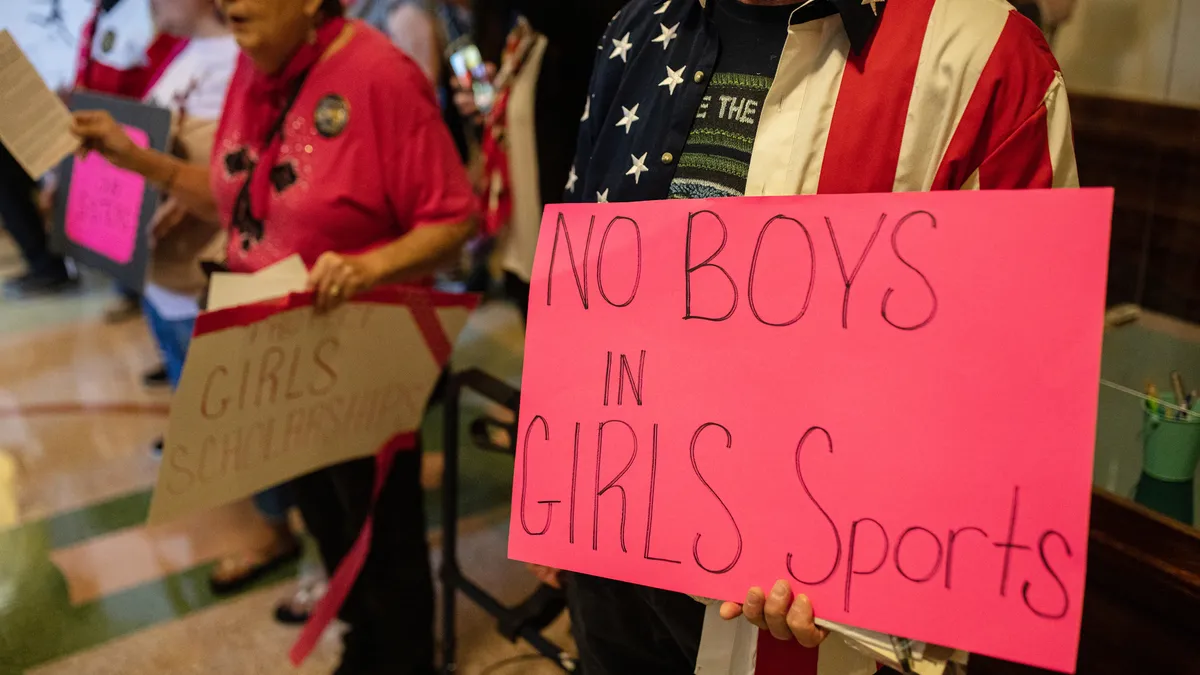Dive Brief:
- Nearly a third, or 31%, of transgender students ages 13-17 now live in states that ban them from playing on sports teams aligning with their gender identities, according to an analysis released Tuesday by the Movement Advancement Project, a nonprofit think tank that tracks LGBTQ+-related state policies.
- With six more states having enacted such bans in 2023, some 22 states currently prohibit transgender students from playing on sports teams matching their gender identities, the group found.
- Lawsuits challenging the bans are pending in a handful of states, including Idaho, West Virginia and Utah.
Dive Insight:
The landscape of LGBTQ+ school policies is changing rapidly, with federal, state and local guidance on transgender student athletic participation sometimes coming into conflict with one another.
On the federal level, the U.S. Department of Education released a long-awaited proposed rule in April that would prohibit districts and states from categorically banning transgender students' participation on athletic teams aligning with their gender identities. Instead, the proposal would require districts to consider various criteria before developing athletic team eligibility.
That proposal, which received more than 154,000 public comments, is expected to be finalized in October after a lengthy feedback and review process.
However, state and local guidance is shifting rapidly — and sometimes running counter to Education Department thinking. At the time the department released its proposal, for example, 20 states already had policies restricting transgender athletes, by MAP's count. Three months later, that number has increased to 22.
School districts in these mostly conservative states are having to comply with policies that may eventually conflict with federal policy. And already, they have to grapple with resistance to those laws from some quarters.
Idaho, West Virginia and Utah currently face temporary injunctions blocking enforcement of transgender student athlete bans, according to MAP.
And in Florida, Democratic mayors are standing up to the state's various anti-LGBTQ measures, with some local leaders urging passage of more inclusive policies.
This situation holds true not only for sports policies, but for other LGTBQ+ issues such as school facility access, pronoun usage, and curriculum and textbook restrictions.
Ultimately, it's possible the Supreme Court will take up the issue of whether Title IX, which guards against sex discrimination in education programs, includes protections for LGBTQ+ students.
The high court could also eventually address transgender student inclusion in K-12 spaces, like facilities and sports, considering lower courts are already split on these issues.













